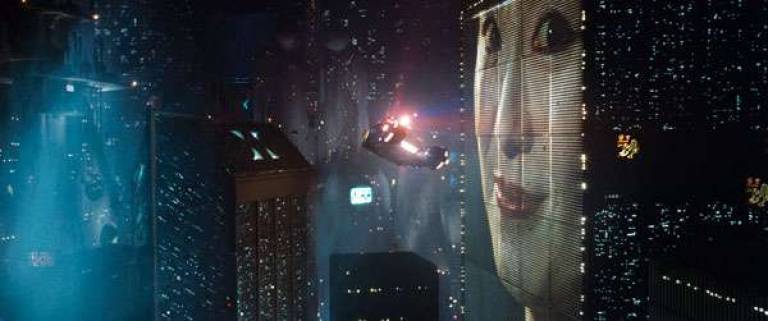Looking back at Martin Scorsese's 1981 speech to the National Board of Review is relevant to the upcoming film season. Scorsese praised the venerable film group for its attention and preservation of the national film legacy, saying, "You care about movies, and to care about movies is to care about people and history." Those words are especially significant this winter. Not simply for the Hollywood award-seeking blockbusters but particularly for the cinematic landmarks soon to be available for film enthusiasts who are excited, to put a fine point on it, about exploring the history of human nature, human creativity. Here's the annual Movies 101. ACTORS HARRISON FORD Replicant or not? Ford's third best-known role as Deckard in Blade Runner (Warner Home Video) proves how movie-star cool can sustain interest in a dated cult movie. This new multi-disc Blu-Ray set finally includes the original theatrical version (not the awful, confused "director's cut"). Years later, it's mostly an art-direction and F/X landmark. Ford (and Rutger Hauer) wear it well. JEAN-LOUIS TRINTIGNANT Keep Film Forum's current retrospective on Trintignant going. The French actor who emblematized every decade since the 1950s is one of the most subtle and best in film history. One of his finest performances is in Patrice Chereau's Those Who Love Me Can Take the Train (Kino), in which Trintignant played a dual role as a patriarch who shared his family influence with a late twin brother (in flashback), a still-amazing modern epic. DEAN MARTIN The singer's Hollywood career is balanced by an acting career full of famous classics and obscure ones like Mr. Ricco (Warner Archives), Martin's swan-song entry in the Dirty Harry tradition. He plays tough and principled, an unbeatable, charismatic combination. ALAIN DELON One of the ultimate romantic icons contributes to Zorro (Sommerville House DVD), a little-known, delightful version of the perennial action-film franchise. This one directed by spaghetti Western adept Duccio Tessari adds to the legacy. NINO CASTELNUOVO European cinema's slyest sex god has an alternate identity as a macho satirist. In 5-Man Army (Warner Archives), Nero joins a team of badasses including Peter Graves and James Daly. A slyly comical buddy movie. AUTEURS FRITZ LANG Pity those Peter Jackson fans who don't know the great epics of Fritz Lang. Still the most astonishing cinematic treatment of legends, Lang's Die Nibelugen saga Siegfried and Kriemheld's Revenge (Kino) pioneered the mystical grand narrative, producing the link between imagination and human memory. Even Lang's now-antique special effects are wondrous in ways that have nothing to do with improved technology and everything to do with artistry. Kino has also released a triple-pack, "Fritz Lang: The Early Works," that preserves the master director's first forays into original storytelling. Harakiri (1919), The Wandering Shadow (1920) and Four Around the Woman(1921) show the beginnings of Lang's genius, which is also the commencement of cinema's combined psychological and visual intensity. ROBERT ALDRICH Although known for hard-boiled action films, Aldrich also made eloquent studies of American milieu and American character. It began with his 1953 debut The Big Leaguer (Warner Archives), maybe the most serenely beautiful baseball movie ever made. Set at a New York Giants training camp, it stars Edward G. Robinson and the young Richard Jaeckel in scenes of open-air endeavor that apotheosize American competition and achievement. JOHN FORD Winning his record-setting fourth best-director Oscar for The Quiet Man (Olive Films), Ford challenged his own renown as the auteur of Westerns with this great, fond British romance. It complements his classics The Informer and How Green Was My Valley with more innate humor than any of his other films. The John Wayne-Maureen O'Hara love story is also a heritage story; a film of inspiring pictorial and emotional beauty. There'll be more to say when the DVD is released in early 2013. PIER PAOLO PASOLINI In "Trilogy of Life" (Criterion) Pasolini's exploration of medieval literature links his modern political vision to the classics, finding parallels in medieval literature: Boccaccio's Decameron, Chaucer's Canterbury Tales and The Arabian Nights. This early-1970s trilogy contains intellectual curiosity and erotic daring; Pasolini focuses on ribaldry to concentrate on the idiosyncrasy of human nature. (It's especially striking in Blu-Ray.) Removing the veil from various cultures, Pasolini explored timeless qualities of life. Our contemporary cinema would do well to catch up to this artist's unusual and major achievement. Follow Armond White on Twitter at [3xchair](https://www.twitter.com/3xchair/)

